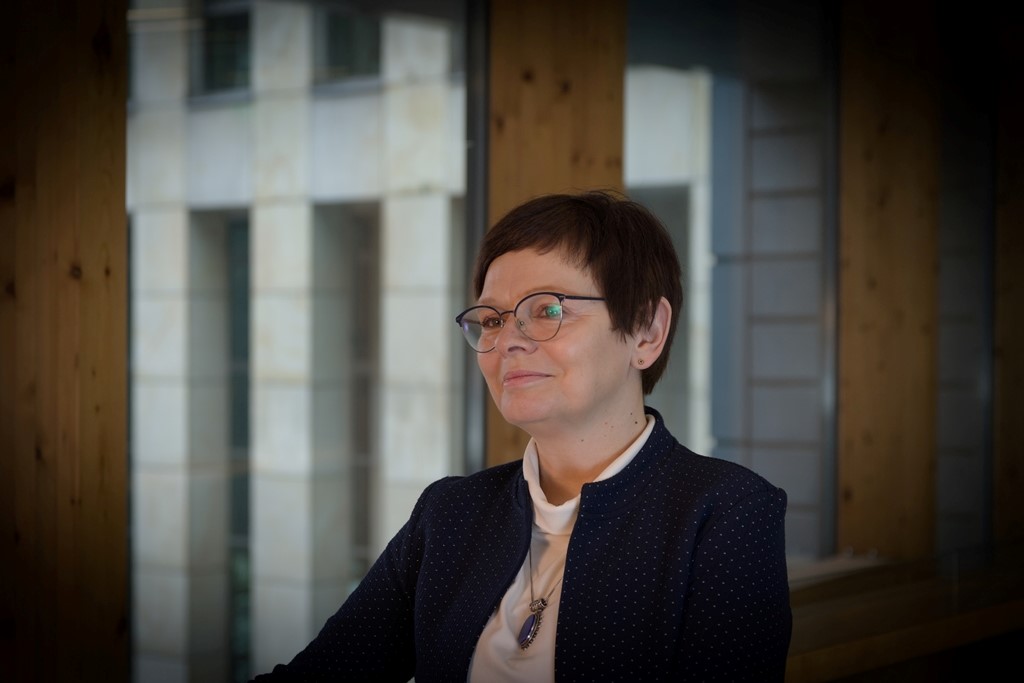Love is an important aspect of psychology, religion and philosophy. It is the most wonderful thing in the world, to be cared for and nurtured.
I talk about the meaning of love with Beata Ecler-Nocoń, PhD, DLitt, Associate Professor, whose research interests include: family pedagogy, relations in marriage, pedagogical conditioning of child development and parental attitudes.
Violetta Kulik: Professor, can love be explained by chemical reactions?
Beata Ecler-Nocoń, PhD, DLitt, Assoc. Prof: In my view, love cannot be explained only by chemical reactions. A human being is a psycho-physical (and even spiritual) whole. Undoubtedly, every emotion (and the experience of love is accompanied by emotional arousal) is important for the functioning of the biological organism and introduces a new quality into our lives.
Violetta Kulik: Scientists have studied the brains of people in love. How does the brain function when in love?
Beata Ecler-Nocoń, PhD, DLitt, Assoc. Prof: Once I was able to read the results of an interesting research. Their authors claimed that certain parts of the brain, when experiencing the arousal associated with falling in love, light up like Las Vegas at night. Interestingly, they also claimed that the man’s brain “beamed” the longest – for three whole years. However, if a person wanted to build a lasting relationship based on “butterflies in one’s stomach”, they could end up very disappointed. Three years is a relatively short time to build a lasting relationship, and it must be remembered that it was the longest period of arousal.
Stimulated by falling in love, the body functions as if under the influence of a drug. A person in love may not eat or drink, as if the needs from the first level of Maslow’s pyramid no longer exist. It is not without reason that the patron saint of lovers is Saint Valentine who, at the same time, is the guardian of crazy people.
Violetta Kulik: Feelings between partners in a relationship can be of different nature. When can we talk about love?
Beata Ecler-Nocoń, PhD, DLitt, Assoc. Prof: Karol Wojtyła, in a publication from sixty years ago (‘Miłość i odpowiedzialność’) [‘Love and Responsibility’], lists as many as five moments in the developing relationship between a woman and a man, only the coexistence of which can be defined as love: desire, falling in love – these two, although wonderful, rather direct the person feeling love towards themselves and their own needs – you “want” the other person as a good for yourself. This is the type of need that says: “I want to be close to you, I desire you” – here we do not yet see love (in the sense of “you are special to me, I want your good, I wish you were happy”). It is only later, when partners experience friendship, reciprocity and affirmation, that we can speak of love. When partners are friends, have mutual concerns, problems, emotional states, etc. Affirmation is the moment when the other person becomes special. However, only when these experiences are mutual, we can presume that we will not encounter toxicity in a relationship.
About ten years ago, I studied the relationship between spouses in terms of the quality of said relationship. These were mostly long-term marriages, which would indicate the durability of love. I distinguished three types of relationships: persistence, co-persistence and growth. Only in the last type the spouses remained special for each other, they cared for each other, there was a deep friendship between them and moments when they still felt something like “butterflies in the stomach”. Nevertheless, such a relationship requires a lot of work on oneself and mutual relations.
Violetta Kulik: A healthy relationship is one in which both parties rely on each other, support each other, and are interdependent. There is also a pathological kind of love. Who loves obsessively?
Beata Ecler-Nocoń, PhD, DLitt, Assoc. Prof: I recently read some very interesting research. Sue Gerhardt, a British psychotherapist, writes in the book “The Meaning of Love. How feelings affect brain development” about the importance of early relationships with a child (before the age of two). It emphasises the importance of closeness, tenderness, etc. These first relationships with people from the closest surroundings (mom, dad) are crucial for the development of the brain, and consequently for the child’s future relationships. In other words, the future pathological love of someone may be due to a parent’s lack of interest in early childhood to some extent. I would not be a pedagogue if I did not emphasise that young parents can now take care of the beauty of experiencing the love of their children in the future.
Violetta Kulik: What would you like to wish to all those in love?
Beata Ecler-Nocoń, PhD, DLitt, Assoc. Prof: I wish to them for their love to be more beautiful, mature and for it to last forever. And let them remember (let me paraphrase a certain thought) that it is not the lack of “butterflies in the stomach” (i.e. constant state of falling in love) that breaks up marriages, but the lack of friendship between the spouses.
Violetta Kulik: Thank you very much for the interview.
Beata Ecler-Nocoń, PhD, DLitt, Assoc. Prof






